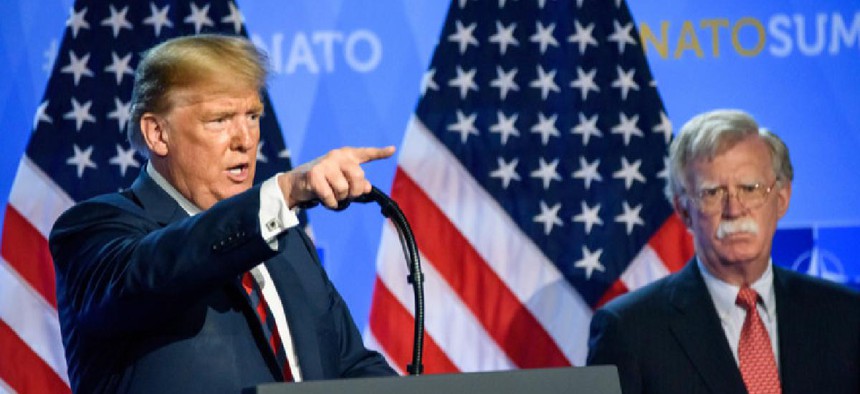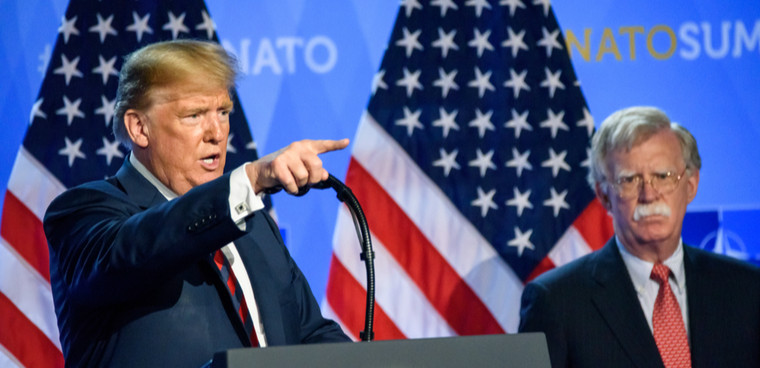Will Bolton's ouster mean a comeback for the top White House cyber job?

The top cyber official at DHS said his agency is already taking on many of the defunct White House cybersecurity coordinator's old responsibilities.

President Donald Trump and then National Security Adviser John Bolton at a NATO Summit in Brussels (Photo credit: Gints Ivuskans / Shutterstock)
When John Bolton was named National Security Adviser last year, one of his first official acts was to eliminate the White House Cybersecurity Coordinator position, arguing it was duplicative and unnecessary. With Bolton out and Robert O'Brien named as his successor, speculation has drifted to whether the position might be restored.
Whether that indeed happens or not, the Department of Homeland Security's top cyber official told reporters during a Sept. 19 briefing in Maryland that his own agency was seeking to take up that mantle, or at least parts of it.
"I think that Congress … in standing up CISA, recognized that there needs to be a federal lead for cybersecurity. I think that's the role we're trying to play" at DHS, Cybersecurity and Infrastructure Security Agency Director Chris Krebs said.
"Don't take the lack of a coordinator for a lack of coordination," Krebs told reporters. He pointed to the diversity of agencies that sent speakers and representatives as an example of how the federal government has naturally moved towards greater cooperation on cybersecurity.
"I think that's what we're seeing today. You're seeing the Department of Energy, National Security Agency, FBI -- you are seeing the entirety of the federal government that plays in the cybersecurity arena here, and they're all working side by side," he said.
Krebs said he had not yet had a chance to meet with O'Brien but that "good friends who know him well" have communicated that he takes cybersecurity seriously. He also said that the role and responsibilities of a potential cybersecurity coordinator today may be different than it was in previous forms.
"The cybersecurity coordinator role and the function and service and value it provides depends on … the times," he said. "It was first set up in 2009, 2010, [and] you have to think about where DHS was in terms of its maturity as a cybersecurity agency. In part, the cybersecurity coordinator was doing some blocking and tackling to make sure that DHS could be effective and engaged across the interagency," he said. "Now, 10 years later, we're in a spot where a coordinator has a different job ... it's not blocking and tackling, its ensuring that we have the most effective coordinating policy and implementation across [agencies]."


